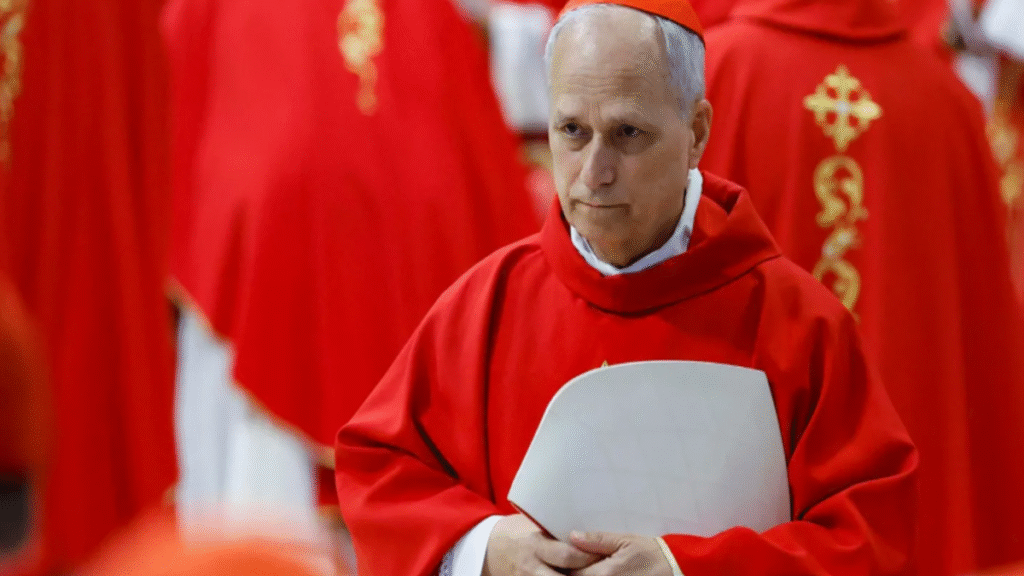Who Is Robert Prevost : Before his name echoed from the balcony of St. Peter’s Basilica, the crowd below was already alive with anticipation. “Viva il Papa!” they chanted—Long live the Pope. In that moment, history was made. Not just because Robert Francis Prevost was named the 267th successor to St. Peter, but because his story—and his name, Pope Leo XIV—comes with profound implications for the Catholic Church and the world it touches.
As someone deeply interested in the intersection of leadership, justice, and real-world impact, I can’t help but reflect on the unique significance of this choice. Because Leo XIV isn’t just a new pope. He’s a bridge-builder. And that matters—a lot.
A Pope Born in America, Shaped by Latin America
Born in Chicago in 1955, Pope Leo XIV is the first American to take on the papacy. But calling him “just American” misses the point. He’s also deeply Latin American at heart. For over a decade, he served in Trujillo, Peru, ministering not from lofty platforms but from dusty streets and community classrooms.
His multicultural roots—Spanish and Franco-Italian—are a testament to the migratory, interconnected world we live in. Growing up in an immigrant family, Prevost often shared how his grandparents’ journeys shaped his values. And I get that. My own grandparents were immigrants too, and their resilience taught me that human dignity knows no borders.
From Missionary to Pope: Leadership Through Service
Prevost’s journey has never been about climbing ladders of power. It’s been about descending into service, especially in places often forgotten—marginalized communities, indigenous populations, victims of clerical abuse. These aren’t buzzwords. They’re lives. And Pope Leo XIV has spent years among them.
He taught theology, pastored local parishes, and mentored young priests in Peru. These aren’t glamorous tasks, but they are deeply productive. Why? Because real productivity isn’t about output—it’s about outcomes. When people feel seen, heard, and valued, they contribute more, stay committed longer, and build stronger communities.
A Quick Data Point:
According to a 2023 Pew Research study, faith leaders who engage directly with social issues are seen as more trustworthy by over 68% of congregants—a trust that directly translates into community cohesion and growth.
Speaking Out for the Voiceless
Pope Leo XIV has already shown he’s unafraid to speak up. On issues like immigration, climate change, and inclusion, he’s echoed and expanded the vision of his predecessor, Pope Francis. I saw a clip recently where he said, “Jesus doesn’t ask us to rank our love for others.” That stuck with me. In a world obsessed with metrics, here’s a man focused on meaning.
He’s not shy about political critique either. A social media post attributed to him challenged US Vice-President JD Vance’s stance on deportations. That kind of public moral leadership matters. Silence is complicity, and the Church can’t afford that anymore.
The Human Rights Perspective
Pope Leo XIV’s approach reflects a deep commitment to dignity, equity, and participation—pillars of the human rights framework. He’s backed initiatives to include women in Church leadership, saying their voices bring “enrichment.” That’s not just symbolic; it’s structural.
In a 2024 interview, he emphasized how women’s inclusion “contributes significantly to discernment.” As someone who’s worked in nonprofit governance, I’ve seen firsthand how inclusive decision-making leads to better, more sustainable policies. Inclusion isn’t charity—it’s strategy.
Taking Action on the Environment
Leo XIV doesn’t just talk about climate change—he acts. He’s called for a “relationship of reciprocity” with the Earth. Under his influence, the Vatican has installed solar panels and transitioned to electric vehicles. These are small steps, yes, but meaningful ones.
And here’s where productivity comes in again. A 2022 McKinsey report noted that green innovations in large institutions improve long-term efficiency by up to 30%. The Church is often seen as slow-moving. Leo XIV is showing it can also be forward-thinking.
Confronting the Church’s Dark Past
It’s impossible to talk about Church leadership today without mentioning clerical abuse. During his time in Peru, Prevost’s diocese faced scrutiny, though no direct evidence has implicated him in cover-ups. Still, the burden of transparency is on him now. Survivors deserve not just apologies, but action and accountability.
In embracing his new role, Pope Leo XIV must continue the hard work of transforming the Church into a space of safety, healing, and justice.
Why “Leo XIV”?
The name “Leo” isn’t random. It recalls Pope Leo XIII, who was a fierce advocate for workers’ rights during the Industrial Revolution. He believed the Church must defend the poor, not side with the powerful. That legacy matters today, as inequality widens and global displacement rises.
Choosing “Leo” is a signal: this papacy will not shy away from the social justice mission of the Church.
Final Thoughts: What This Papacy Could Mean for All of Us
Leadership isn’t about hierarchy. It’s about presence, principle, and purpose. Pope Leo XIV brings all three. He’s a man shaped by immigrant roots, community work, and a deep belief in the dignity of all people.
From climate action to gender inclusion, from immigration to transparency, this papacy might just be the shake-up the Church needs—not in doctrine, but in direction.
And as someone who believes in the power of empathy and justice to transform systems, I’m cautiously hopeful. I’ll be watching—not for perfection, but for progress.
